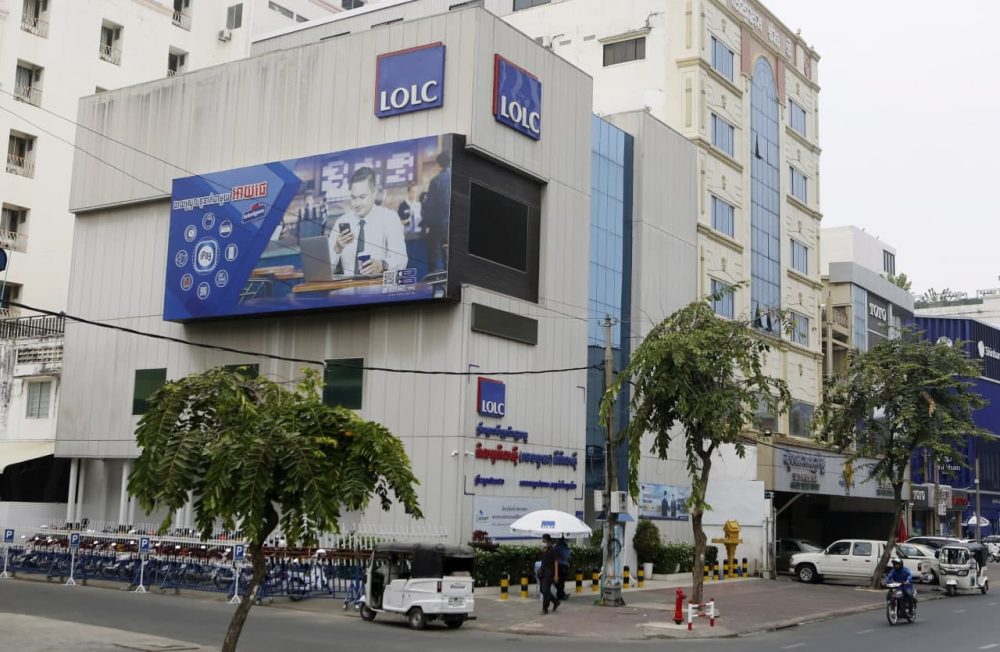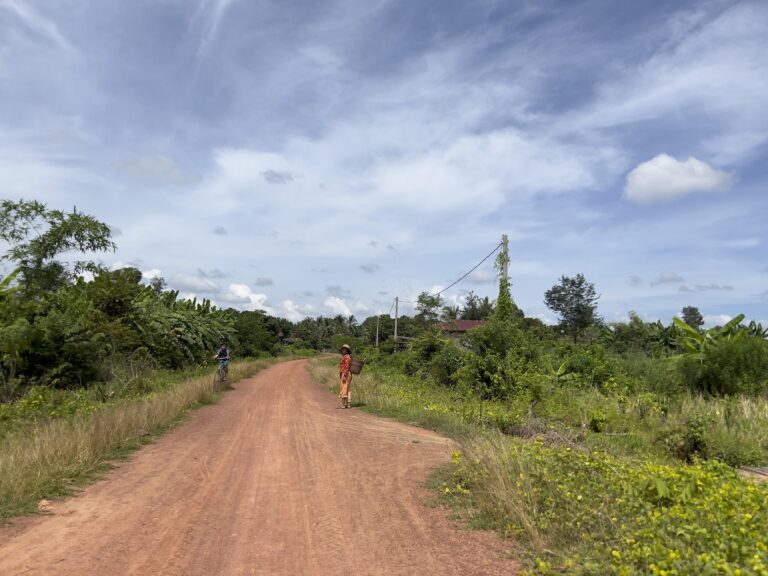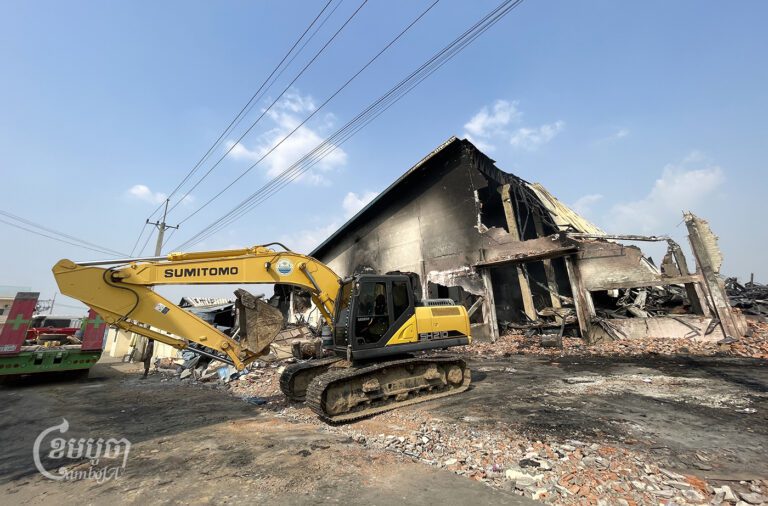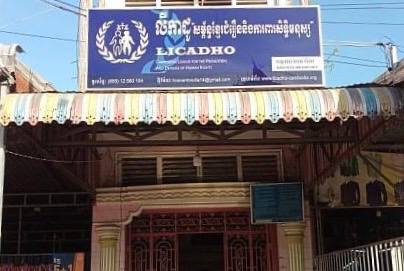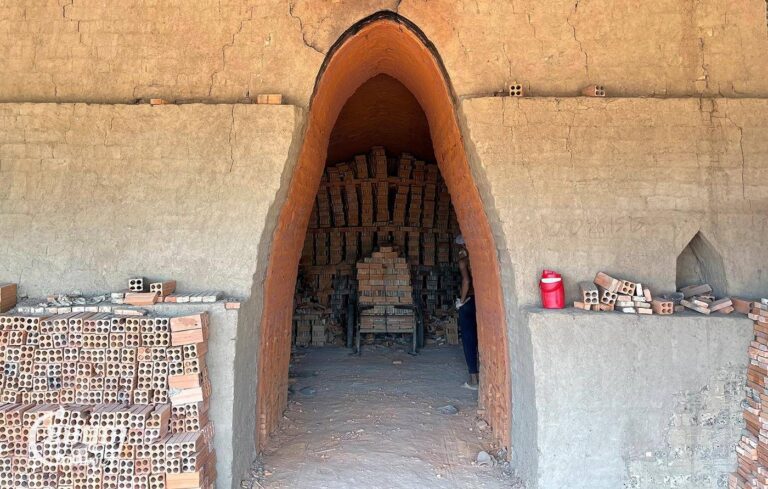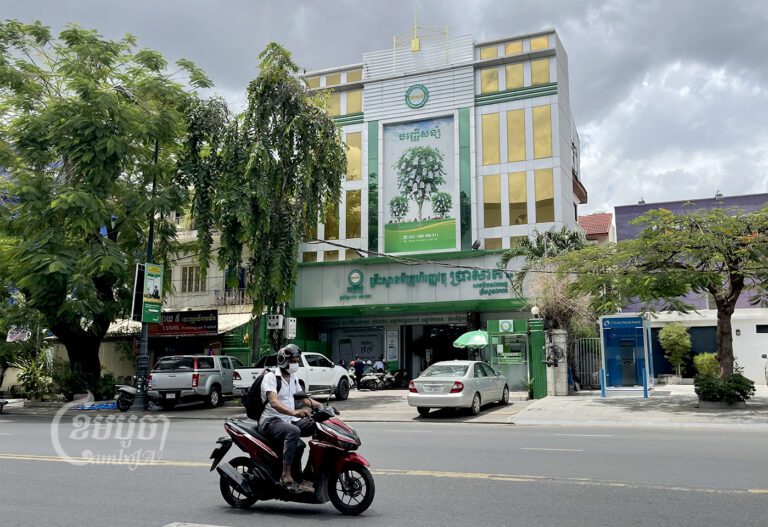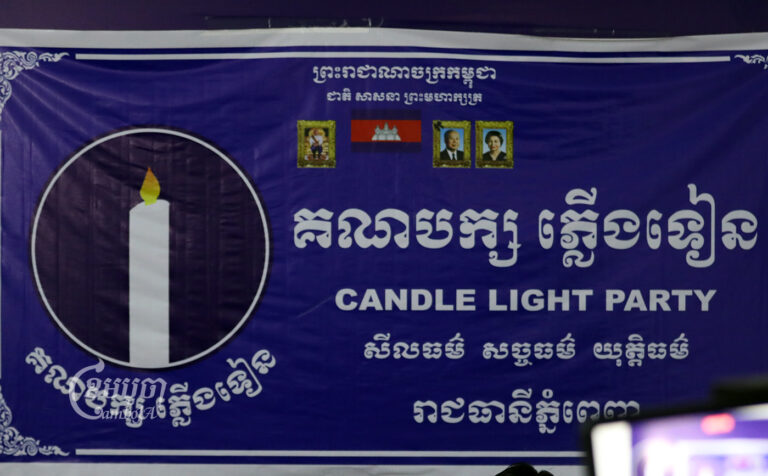Three NGOs filed a complaint Monday to a Dutch government watchdog accusing social investor Oikocredit of failing to conduct due diligence by investing in Cambodian microfinance institutions (MFIs) whose lending practices have been linked to rights abuses.
Cambodia-based human rights organizations Equitable Cambodia and Licadho, along with NGO FIAN Germany, say Oikocredit knew of the MFI industry’s harmful consequences since at least 2017 but continued to invest tens of millions of dollars into microlenders Prasac Microfinance Institution Plc., LOLC (Cambodia) Plc. and Amret Plc. The three MFIs have been implicated in media, NGO and academic reports exposing widespread land sales to repay debt, use of child labor and other negative social impacts resulting from overindebtedness.
The complaint, sent to the National Contact Point, a Dutch government-supported grievance mechanism which reviews the activities of Dutch companies, claims Oikocredit failed to enforce Organization for Economic Cooperation and Development (OECD) guidelines, which provide global standards for responsible business conduct.
Cambodian borrowers have the highest average microloan size in the world at $4,280 in 2020, more than the yearly earnings of 95 percent of Cambodians, according to Licadho.
There is “significant risk of widespread, systemic, and severe adverse human rights impacts in Cambodia’s microfinance sector, and specifically associated with the activities of Oikocredit’s partners,” the complaint states. “The evidence has further established that Oikocredit has had knowledge of these harms for years.”
As of February, Oikocredit had active loans of $10 million to Prasac, $31 million to Amret and $32 million to LOLC. The three MFIs collectively hold more than $6 billion worth of loans in Cambodia’s $14.4 billion microloan sector. Oikocredit has invested more in Cambodia than any other country besides India, the complaint notes.
“Oikocredit’s goal as an investor in microfinance is to sustainably improve the quality of life of low-income people by supporting our partners in their provision of responsible and inclusive financial services,” said Oikocredit in a statement. “We, therefore, take any reports of potential unethical behavior by our partners very seriously.”
“Oikocredit International will fully cooperate with the National Contact Point and provide all the necessary information,” the statement added. “Oikocredit remains confident that our carefully selected partners are fulfilling their agreements with Oikocredit and are committed to best practices in client protection.”
“Oikocredit claims to be a social investor, but their investments in Cambodia have caused irreparable harm to borrowers here,” said Naly Pilorge, outreach director at LICADHO. “Our hope is that this complaint will compel Oikocredit, as well as other so-called ‘social’ or ‘impact’ investors who have fueled this human rights crisis, to fix the harms they’ve contributed to and provide real relief for Cambodian borrowers.”
Oikocredit study showed overindebtedness
In 2017, Oikocredit commissioned a report into the Cambodian MFI sector — including LOLC, Prasac and Amret — uncovering “many examples of inappropriate practices in loan disbursement and collection.”
Between 28 percent to 50 percent of Cambodian MFI borrowers were “insolvent,” “critical,” or “at risk,” the study found. More than a quarter of borrowers owed monthly debt repayments exceeding their monthly incomes.

The 2017 study also revealed a significant number of borrowers removed their children from school and sent them to work to repay debts, as well as reducing medical expenses and food consumption or migrating to find new work. The Oikocredit study was never released publicly.
The complaint requested Oikocredit publicly disclose details about its due diligence process and how it was applied in recent years to review loans awarded to Prasac, LOLC and Amret, given the negative impacts on borrowers identified in the Oikocredit-supported 2017 study.
Oikocredit has not publicly released details of its due diligence process or how it specifically assesses the environmental and social standards of companies it invests in, according to the complaint.
Oikocredit requires MFI partners to participate in client protection programs which mandate borrowers do not become over indebted. Yet Prasac’s average microloan size is nearly $8,000, while the median monthly income of Cambodian borrowers is only $96, the complaint points out.
Amret and Prasac did not respond to requests for comment.
“LOLC believes that Oikocredit does not violate human rights and OECD guidelines,” said Sok Voeun, CEO of LOLC Cambodia and chairman of the Cambodia Microfinance Association (CMA), in a written response.
“The key part of the LOLC customer pathway is careful due diligence and clear client communication to ensure we provide appropriate loans, tailored to a customer’s income generation capabilities (cash flow base rather than collateral base),” Voeun added. “Our operations adhere to client protection principles.”
CMA spokesperson Kaing Tongngy said he had not yet read the complaint but believed it would be “not reliable” because it was “done by people who lack an understanding of the microfinance sector” and denied there were “systematic abuses by any institutions.”
“We acknowledge that the sector is not perfect, but the sector has zero-tolerance against all unethical practices or abuses by any staff members,” he said. “As the industry leader, CMA and our members have always regarded client protection as core in our business operations.”
Amid land sales, calls for debt relief
The complaint demands Oikocredit halt investments into Cambodia’s MFI sector until land titles held as collateral are returned to borrowers and victims of abuse are compensated. The NGOs urged Oikocredit to divert profits from loans to Prasac, LOLC and Amret since 2017 into a debt relief fund to compensate borrowers for abuses linked to those investments.
“Oikocredit has a responsibility to seek to prevent or mitigate any actual or potential adverse impacts linked to them through that business relationship, regardless of whether they contributed to the impacts,” the NGOs’ complaint states.
An estimated 167,000 Cambodian households sold land to repay debt in the last five years, according to a September study funded by the German government’s Federal Ministry of Economic Cooperation and Development, one of the MFI industry’s leading funders. The report urged for debt relief in some cases and called for the German government to halt further investment in the MFI sector.
In a February statement since removed from its website, Oikocredit stated “Microfinance institutions that Oikocredit finances in Cambodia only use land as collateral for large-volume loans to corporate clients….”
Yet this is “patently false and easily disprovable” the complaint states, noting that Prasac alone holds land titles as collateral for 99.87% of borrowers’ loans, according to the company’s financial statements last year.
“The lack of knowledge about such a crucial aspect of their partner organization’s operations in Cambodia as late as February 2022 supports the conclusion that Oikocredit’s due diligence procedures are severely deficient,” the complaint notes.
The complaint calls for an independent audit into how the due diligence procedures for Oikocredit’s ESG ratings “failed to account for the severity and extent of harms occurring in Cambodia’s microfinance sector.”
Borrowers like Kandal province resident Pov, 42, recount the pressures they have faced from MFI credit officers to repay loans. Pov, who has been paying off a $50,000 Prasac loan since 2017, said last month her credit officer rejected her request to lower her monthly repayment rate. Instead, the credit officer urged her to sell some land to meet her remaining repayment schedule.
“He insulted me, as I don’t have the ability to pay, [saying] ‘please sell that land and pay it off,’” Pov said. “They coerce people.”
Pending investigations
Since 2019, Licadho has released a series of reports highlighting impacts of overindebtedness on MFI borrowers, echoing the concerns raised by Oikocredit’s 2017 study: forced land sales, intimidation by credit officers and migration and child labor connected to loans from Prasac, Amret, LOLC and other MFIs.
A range of media and academic reports in recent years have also exposed problems connected to the industry, including irresponsible lending practices, coercive debt collection tactics, violations of indigenous land rights and reduced nutritional, health and living standards.
In February, Licadho and Equitable Cambodia filed a complaint to the World Bank’s International Finance Corporation (IFC) against six microfinance institutions and banks, including Prasac, Amret and LOLC, alleging rights abuses and violations of IFC standards. Last month, after the MFIs and banks declined to engage in dispute resolution, the IFC’s Compliance Advisor Ombudsman announced it would review whether the complaint warranted a full investigation.
In a written statement, National Bank of Cambodia (NBC) Director General Chea Serey said “We encourage full independent investigations before any accusations are made and we, NBC, stand ready to work and resolve any problematic findings as a result of those investigations.”
LOLC’s CEO claimed his MFI has “a range of measures in place for debt relief,” noting that between March 2020 and June this year, 24 percent of LOLC clients restructured their loans. He said LOLC is willing to write off loans if borrowers do not have the ability to repay and had written off $7.85 million in loans since 2020.
Between 2020 and 2021, microlending institutions offered loan restructuring to 370,000 clients affected by the pandemic, according to CMA’s Tongngy. He added non-performing loans remain between two and three percent. But rights groups have stated borrowers are pressured and intimidated into selling land or taking other drastic measures in order to meet their repayment schedules, keeping the non-performing loan rate low.
A 2021 study by the Center for Khmer Studies found the MFI industries’ loan restructuring policies, which allowed clients to defer repaying the principal sum but requiring ongoing interest payments, could increase the total cost for borrowers. The study also found the measures were not accessible to all borrowers and did not sufficiently mitigate the impacts of overindebtedness.
Licadho and other rights groups have noted that the industry’s loan restructuring programs have failed to prevent negative consequences to borrowers, such as the estimated rate of one sale linked to MFI debt every 16 minutes in the past five years.
“Investors and development agencies need to realize that these investments are doing real harm, and they need to come to the table to start a discussion about how to fix these problems,” said Eang Vuthy, Equitable Cambodia’s executive director. “We are ready to work with investors interested in finding real solutions that will benefit the most vulnerable borrowers in Cambodia and provide real relief to struggling borrowers.”


